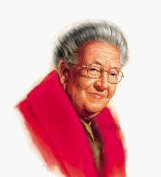Home


Corrie ten Boom,
(April 15, 1892 – April 15, 1983) was a Dutch Christian
Holocaust survivor who helped many Jews escape the
Nazis during World War II. Ten Boom co-wrote her
autobiography, The Hiding Place, which was later made into a
movie of the
same name. In 1940, the Nazis invaded the Netherlands, by
1942, she and her family had become very active in the Dutch
underground, hiding refugees. They rescued many Jews from
certain death at the hands of the Nazi SS. They helped Jews
because of their veneration for God's Chosen People (though
the Ten Boom family was known for their gracious character
towards all--especially the handicapped), and even provided
kosher food and honored the Sabbath. Corrie's family were
strong
Christians. She and her family resided at Barteljorisstraat
19, Haarlem, Holland.
In May of 1942, a woman came to the Ten Boom door with a
suitcase in hand. Nervously, she told Ten Boom that she was
a Jew and that her husband had been arrested several months
before, and her son had gone into hiding at Corrie ten
Boom's home. Occupation authorities had recently visited
her, and she was too fearful to return home. After hearing
about how they had helped the Weils, she asked if she might
stay with them, and Corrie ten Boom's father readily agreed.
A devoted reader of the Old Testament, Casper ten Boom
believed Jews were indeed "the chosen," and told the woman,
"In this household, God's
people are always welcome. "Thus began "the hiding place",
or "de schuilplaats", as it was known in Dutch (also known
as "de BéJé", with BéJé being derived from the name of the
street the house was in, the Barteljorisstraat). Ten Boom
and her sister began taking in refugees, some of whom were
Jews, others members of the resistance movement sought by
the Gestapo and its Dutch counterpart. There were several
extra rooms in their house, but food was scarce due to
wartime shortages. Every non-Jewish Dutch person had
received a ration card with which they could procure weekly
coupons to buy food.
The Germans arrested the entire Ten Boom family on February
27, 1944 at around 12:30 with the help of a Dutch informant
(Ten Boom would later discover his name to be Jan Vogel.
They were sent first to Scheveningen prison (where her
father died ten days after his capture), then to the Vught
political concentration camp (both in the Netherlands), and
finally to the notorious Ravensbrück concentration camp in
Germany in September 1944, where Corrie's sister Betsie
died. Corrie was released in December 1944. In the movie The
Hiding Place, Ten Boom narrates the section on her release
from camp, saying that she later learned that her release
had been a clerical error. The women prisoners her age in
the camp were killed the week following her release. Ten
Boom was honored by the State of Israel for her work in aid
of the Jewish people. She was invited to plant a tree in the
Avenue of the Righteous Gentiles, at the Yad Vashem, near
Jerusalem. Oskar Schindler is also honored there. Ten Boom
was knighted by the Queen of the Netherlands in recognition
of her work during the war, and a museum in the Dutch city
of Haarlem is dedicated to her and her family.
|
|
.
Home/a> | Inspiration | Know Your Bible | Music Videos | Humor | Prayer Request | Bible Help Verses